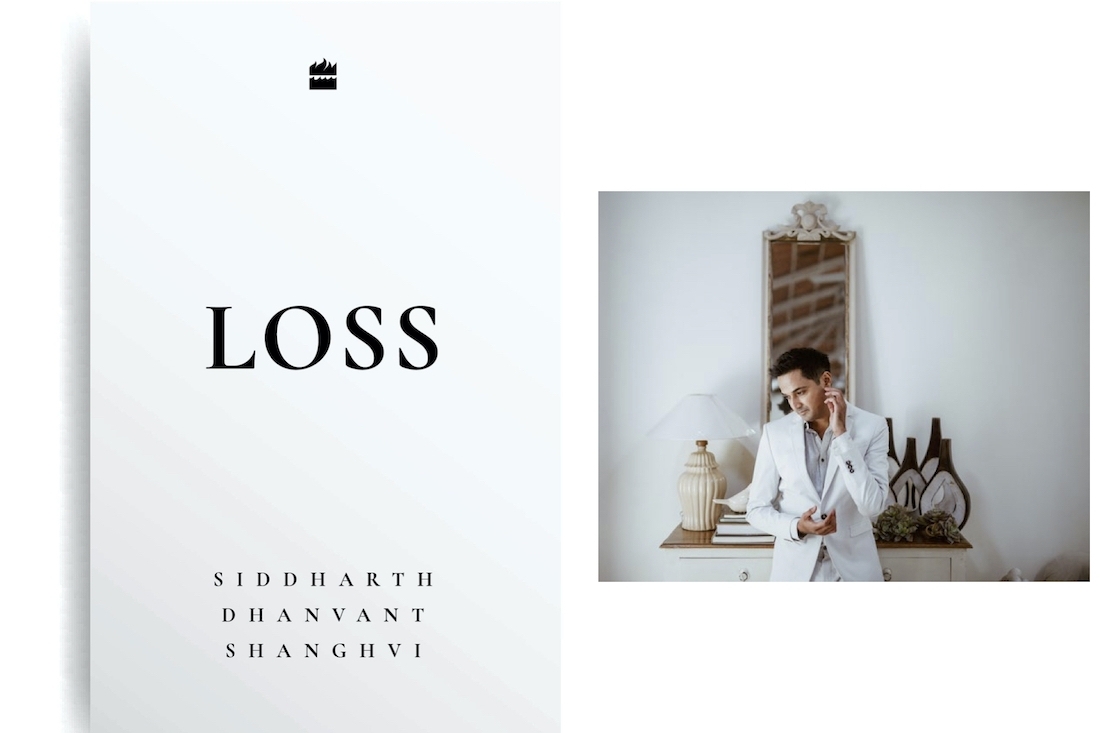
Photography Shekhar Karam Belker

Photography Shekhar Karam Belker
An award-winning writer, a passionate photographer, a curator with a keen eye, Siddharth Dhanvant Shanghvi’s artistry explores various fragments of his being. Both his writing and photography is real and has feeling. Out with his deep, dark, honest and heartfelt memoir, ‘Loss’, his most personal work till date, Siddharth revisits the death of the three most important beings that have been and continue to be a part of his life. A Beautiful book, that liberates you, saddens you, makes you smile and tears you up at times. Loss is life, as he knows it...
You have written award winning fiction, you have authored a picture book and you have written umpteen articles on varied subjects so what inspired your thoughts to take such a personal turn in your memoir, Loss?

In 2018 my father passed away, I was orphaned. Death, Toni Morrison wrote, might be the meaning of life (and language its measure). I don’t consider my own death morbidly, or flippantly, but as one of life’s more central questions: How do I want to die? Of course, there’s no choice in how one dies, but I can consider ideas around it. The three key deaths in my life, of my mother, father, my pet, Bruschetta. What did I learn from their death? That we go on, but there’s a certain kind of fun you had only with one person and with the loss of that person dies that great, specific and deep joy you could enjoy only with them. That’s the real loss: how you took pleasure in each other and no one else can replicate that. I was thinking about these things, which turned into essays.
You relive three extremely deep bereavements of your life through the three essays – was the process painful or liberating?
Earlier this year, I woke up one morning in early January, I decided I was going to be a very different kind of writer than from the one that I have been all my life. I meant it stylistically; I veer toward minimalism and abstractionism now, thanks to seven years of curatorial practice. But more importantly, I decided to be a serious writer, which is to say I would write seriously, with all my hours, to the exclusion of most social contact. I was going to do this like a student. All my life I wrote books for friends and lovers, as gifts; they were objects of love. Now, I was going to do it for myself, as an object from my life. After the loss of my parents something changed – I was no longer a child; and after writing about their deaths, as I did in Loss, I changed again: I was now, irrevocably, an adult. Writing Loss was painful but liberating – it also released me into the writer I needed to be right now.
Can you tell us a little about each of the essays?
No, I would rather you read them. Instead, I’ll tell you about why you should read Asymmetry by Lisa Halliday, perhaps the best novel, in many years, so clever and delicious and written with such bravura energy, it summons to mind tap dancing. I would suggest you eat at Cellini in Mumbai and Mahe in Goa. Bina Punjani is the best stylist in the world and works out of Panjim. Dr. Pradhan is the best dentist in Mumbai. Atul Sarin is the patron saint of human decency and runs a wonderful animal charity, WAGOA.com,which I am lucky to support (why don’t you come see us some time in Siolim?). I’m sorry I didn’t answer your question but at least we shared the space with talent. Life is short – be generous. That’s a thing I learned from writing ‘Loss’ – you are never poorer for what you give away, time, money, love. Or your tips. Give tips.
What have you learned or discovered about yourself from their absence? How has it changed you as a writer and person?
I love my parents, but I miss no one. I might even cry about thinking about certain things, how my mother sang, or my father’s feet, but I miss no one. I think it has come from living alone in Goa, where I am so entirely contained in myself that I recognise that when you finally drop into yourself then you no longer need to share that self with anyone. The thing is complete. Tigers don’t seek company. After they died, I felt they had put me together, all the pieces of me, this was their last gift for me. The moat sealed; the castle safe.
You say ‘you write to erase some part of your pain’ and this has been your motive ever since you began writing – what relationship do you share with the written word?
Books should bring relief to the reader, they must make you think, of course, but they must also make room for all the broken things inside you. With language you can – I am con- vinced – stitch the pieces of yourself into a strong and true wholeness. My mother taught me this– we grew up telling her stories because she was unable to walk. As her private spies, she trained us to see the littlest thing as the biggest clue leading up into the deepest mystery. There must be a literature of relief – there is so much pain out there, some of the writing must be balm. This is my relationship with writing. It must think of the pain of others and find ways of how to lessen this.
And lastly, in continuation to the previous question, do you need to feel to write and/or can writing be devoid of feelings?
Writing without feeling is typing.
Text Shruti Kapur Malhotra